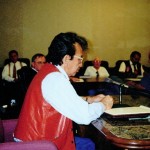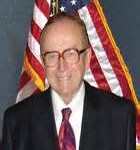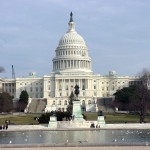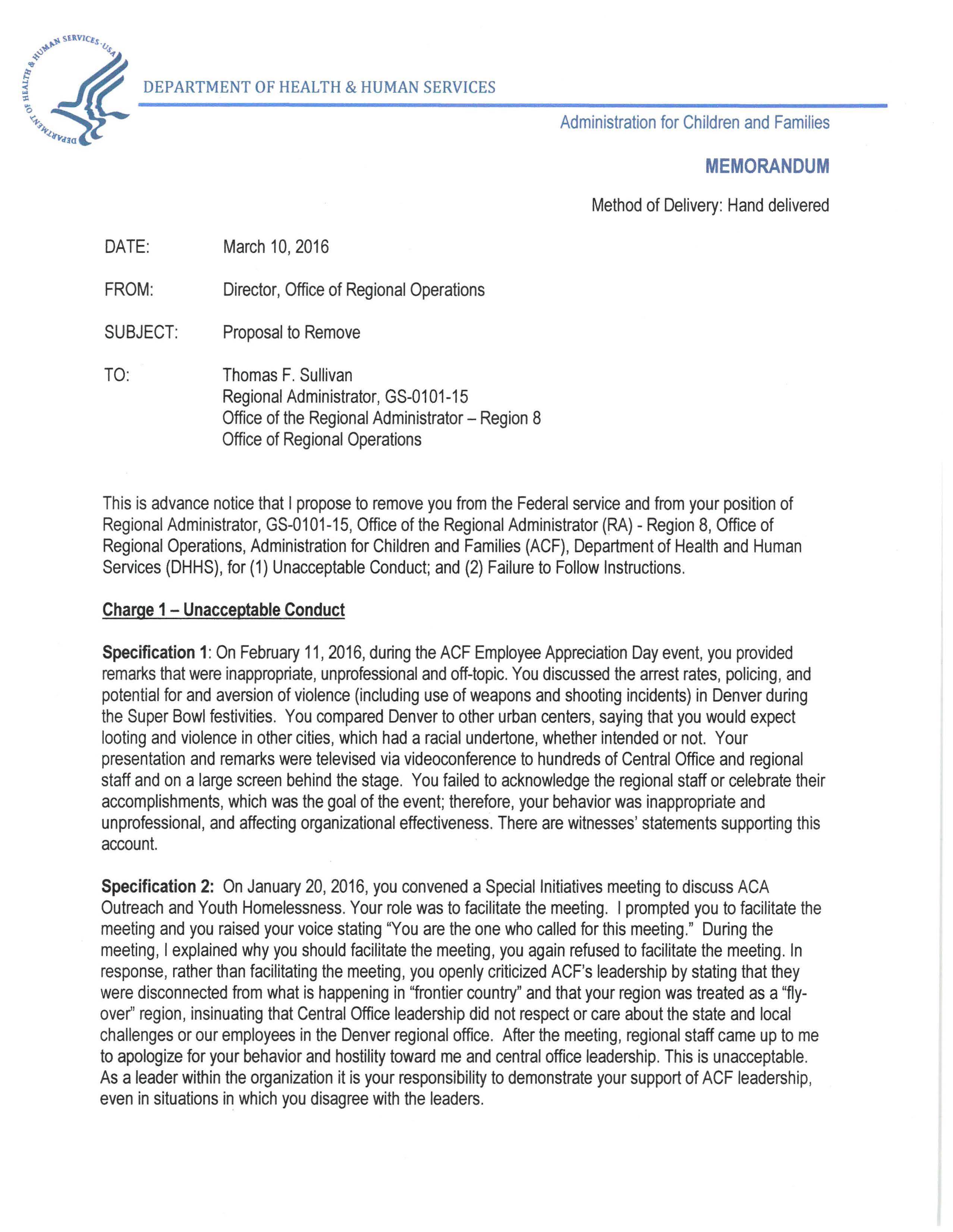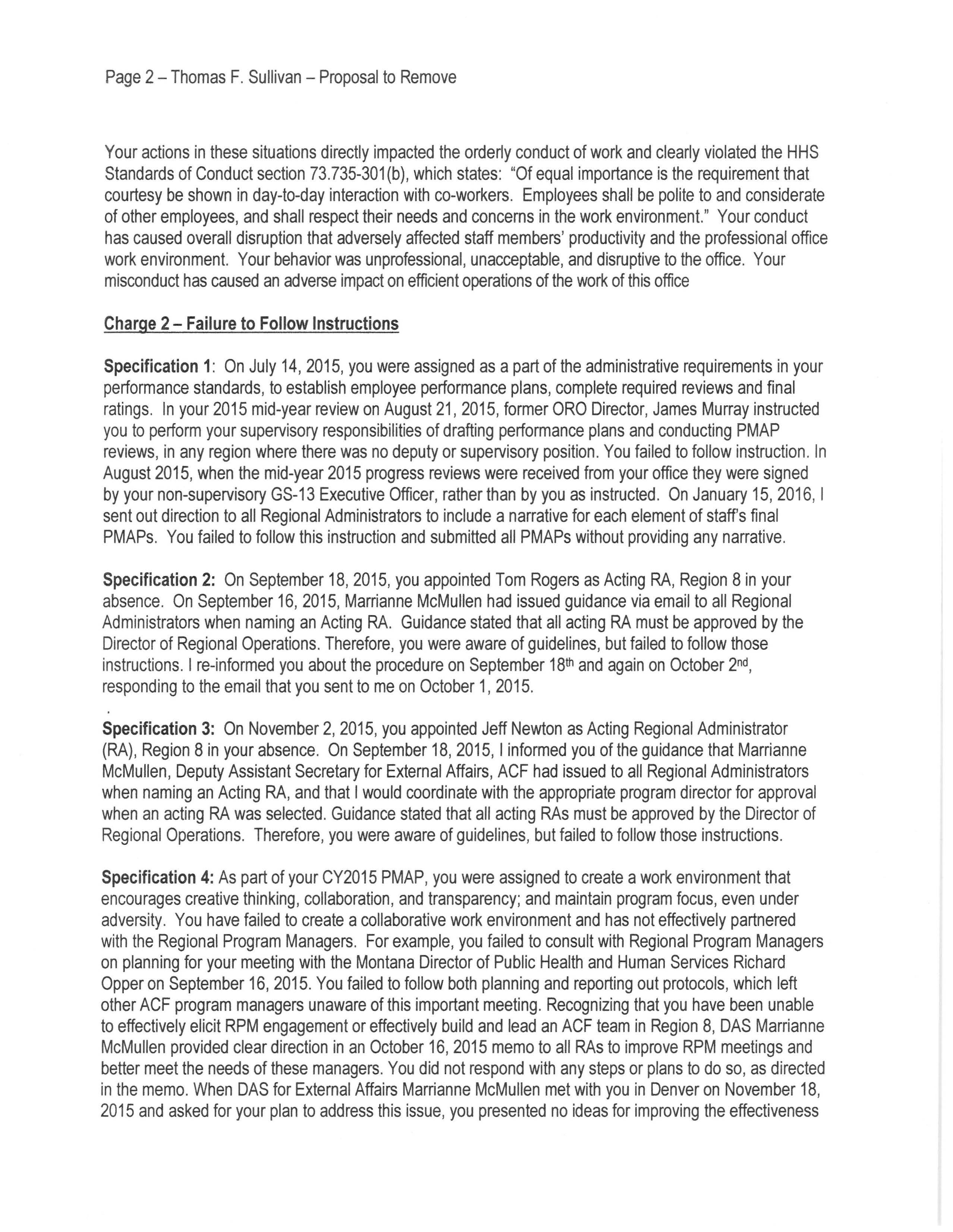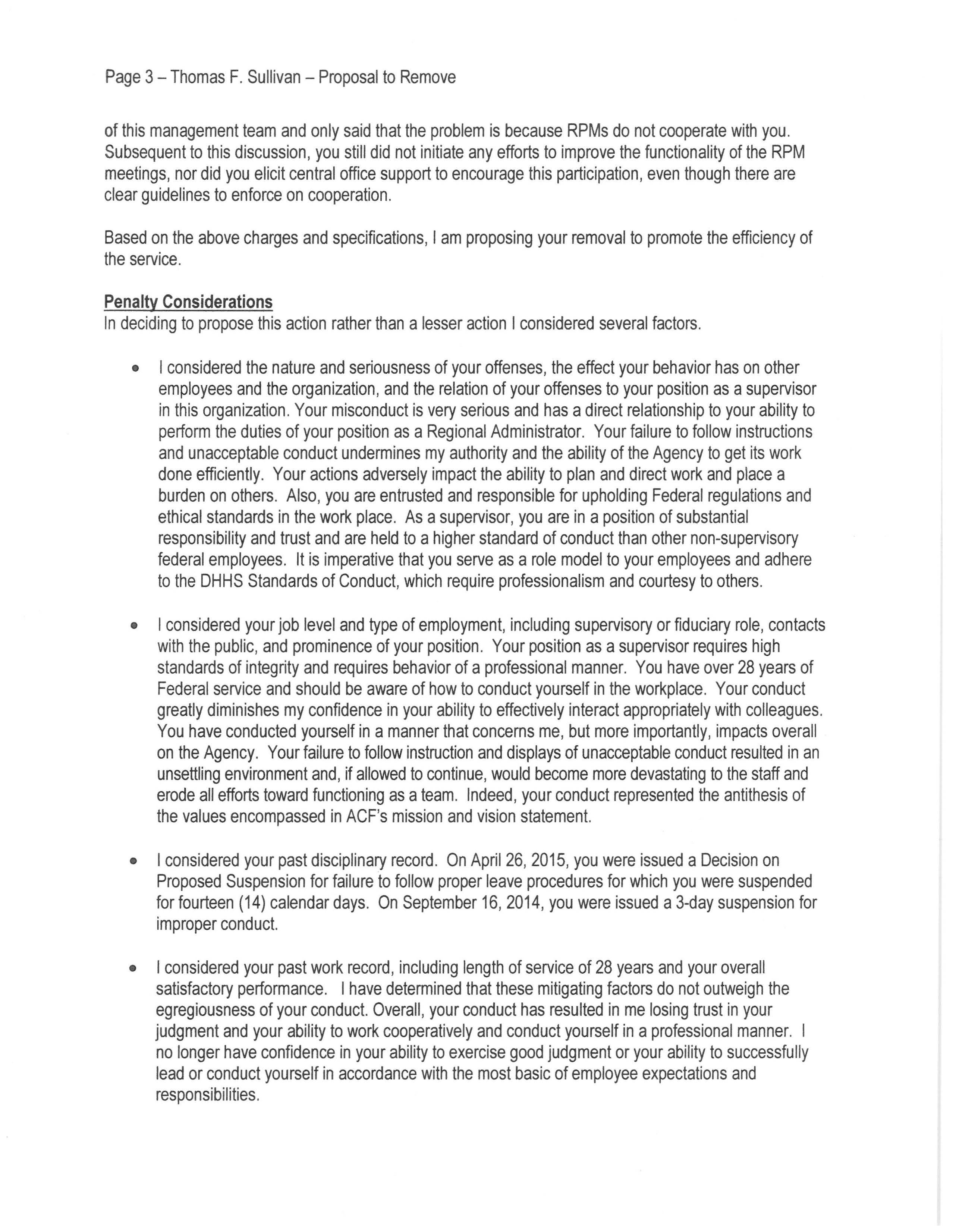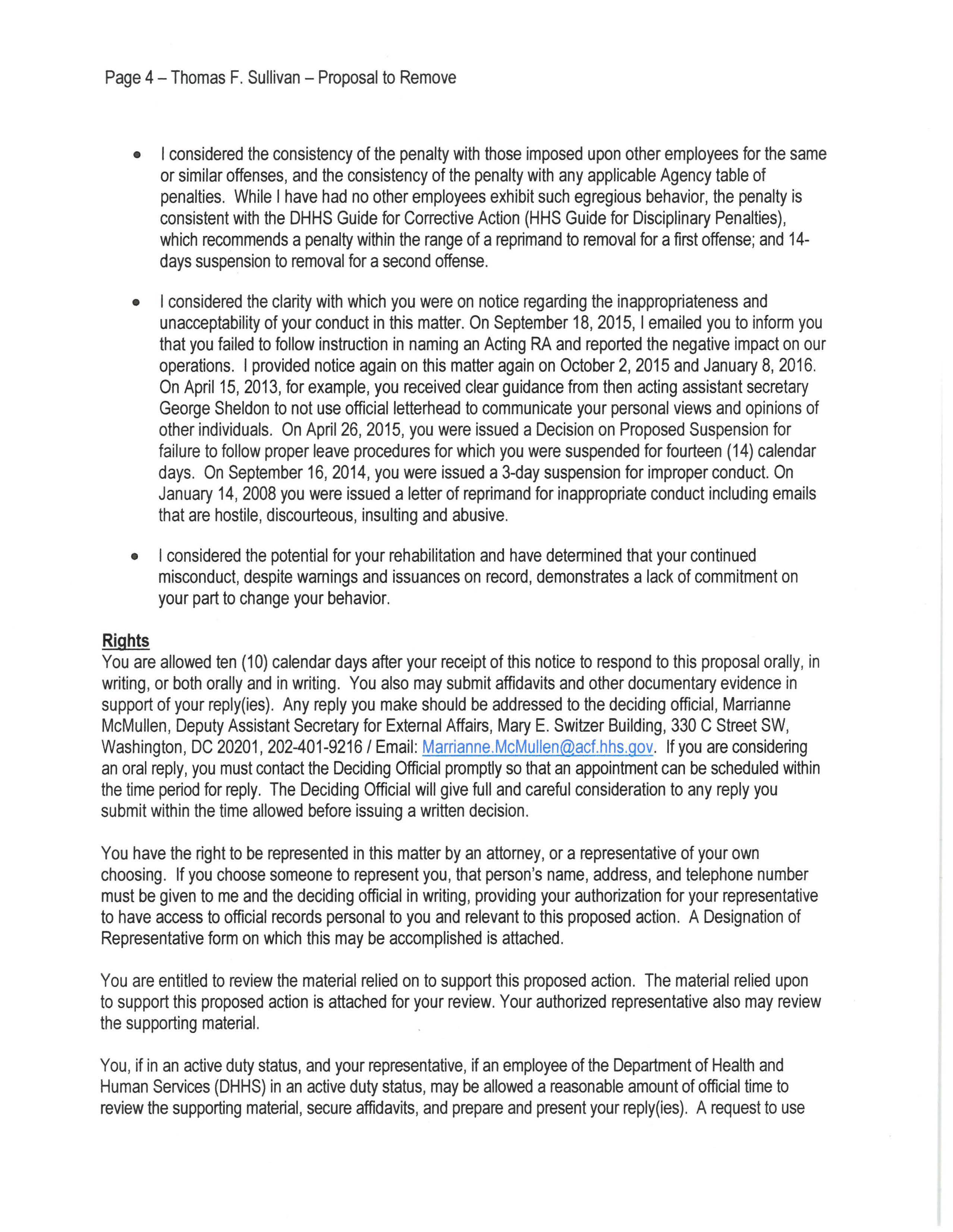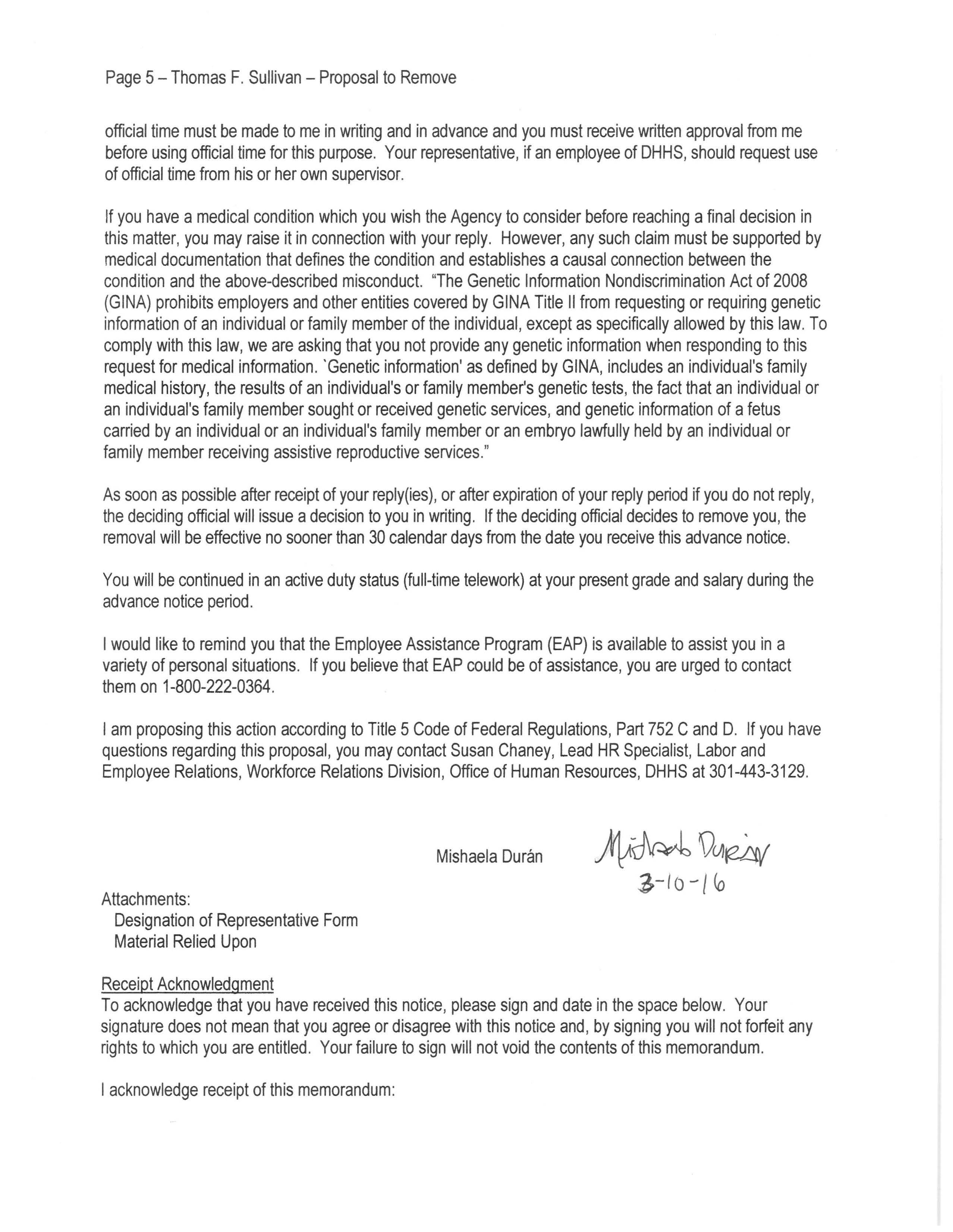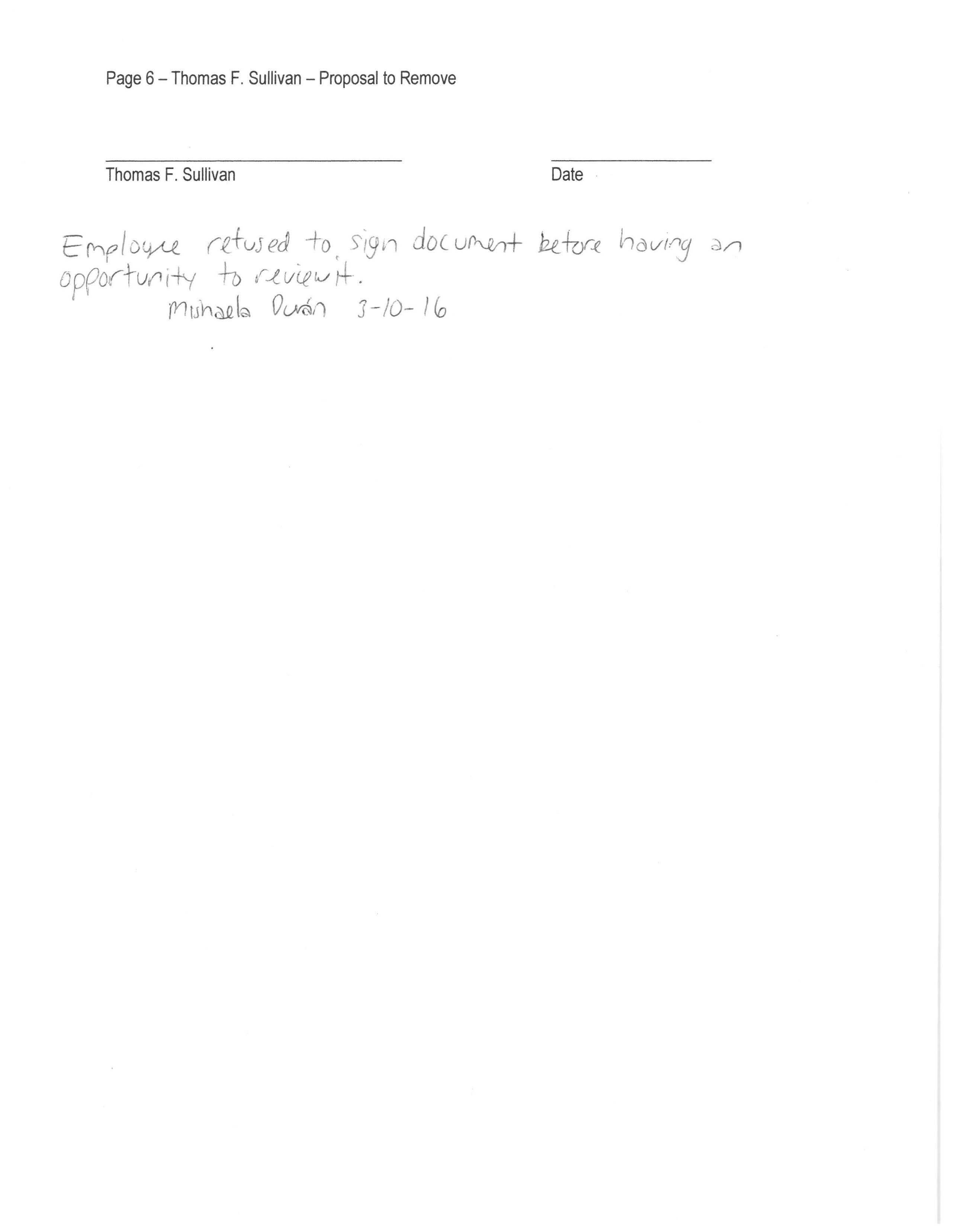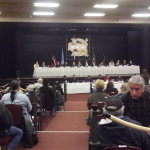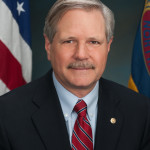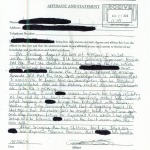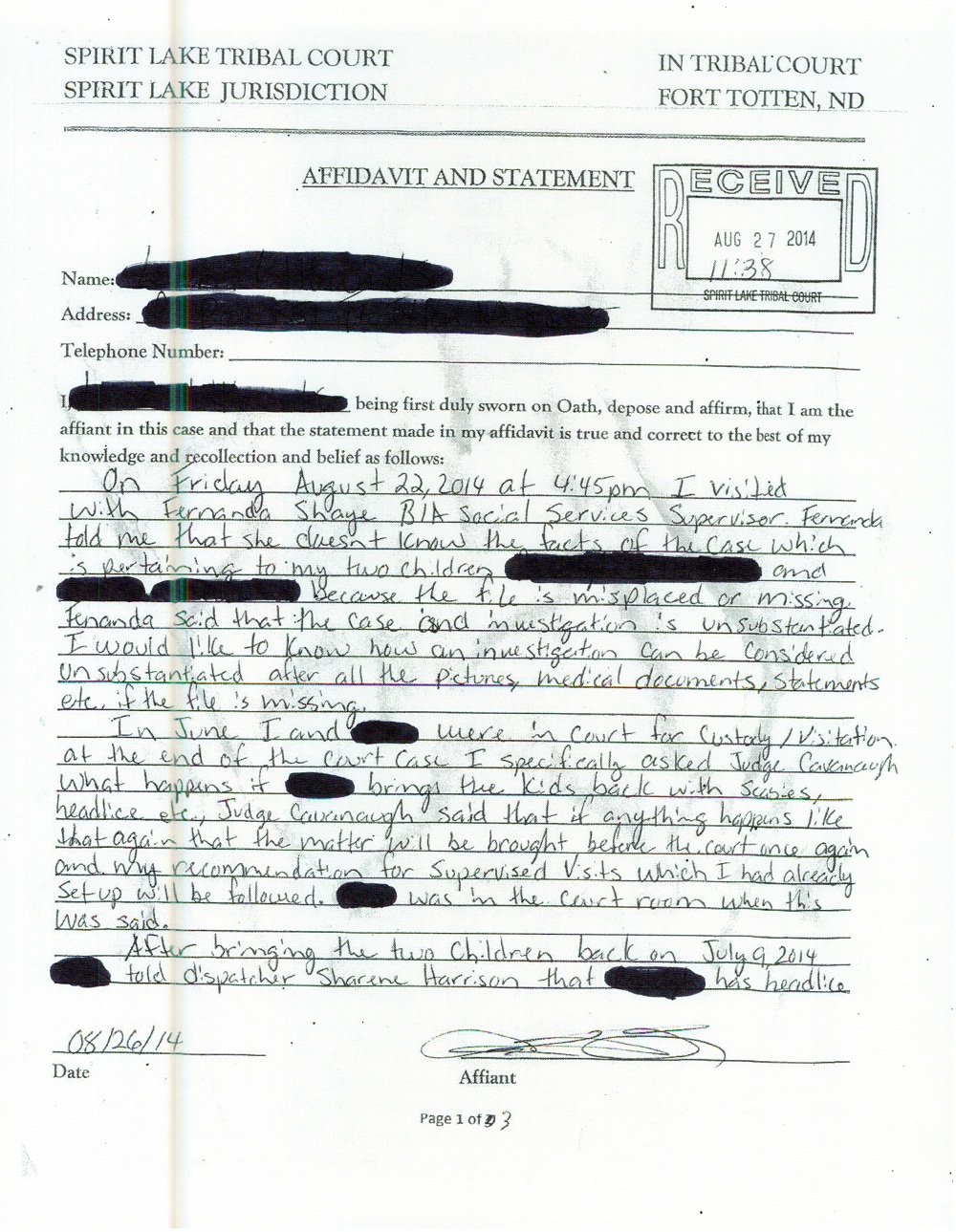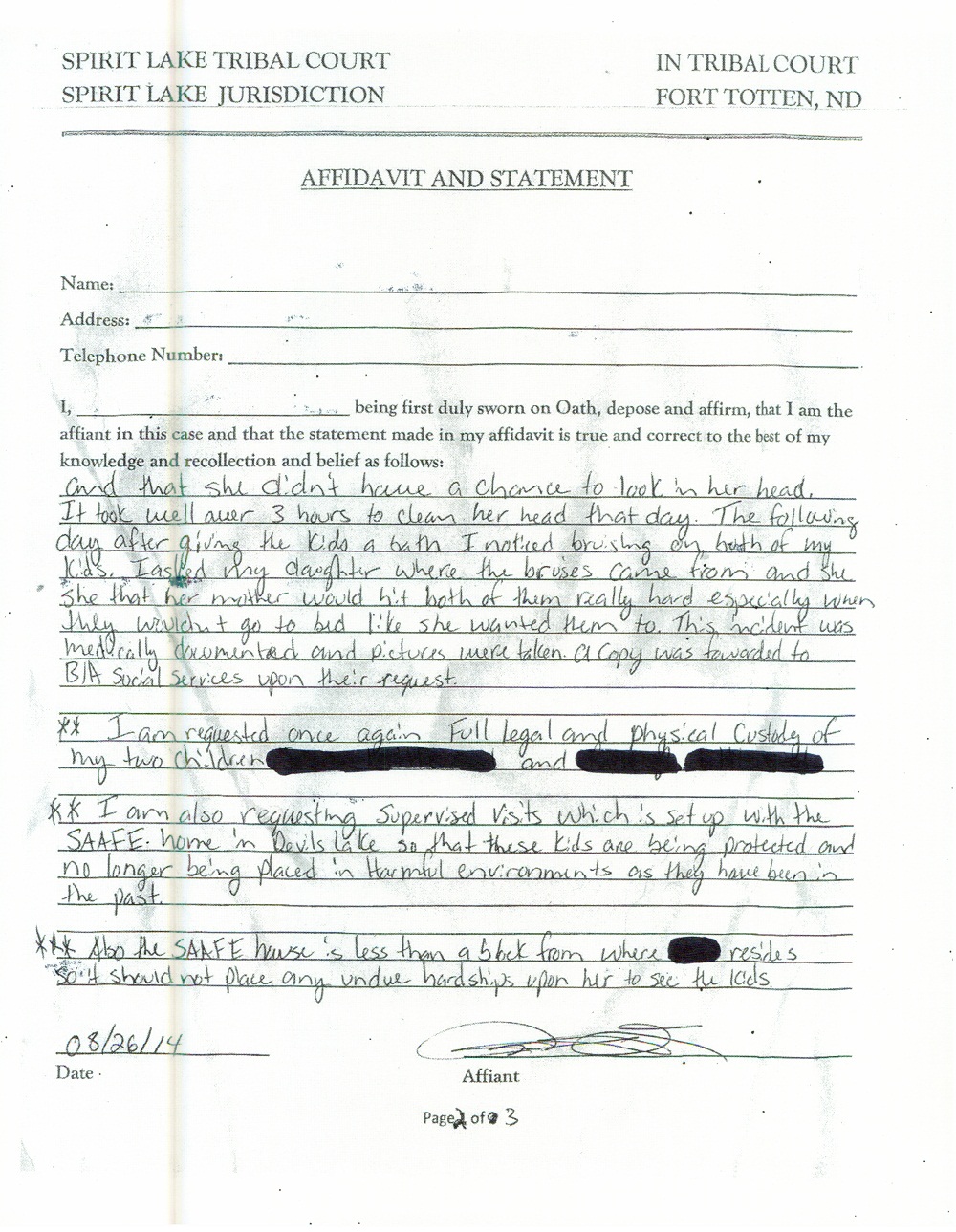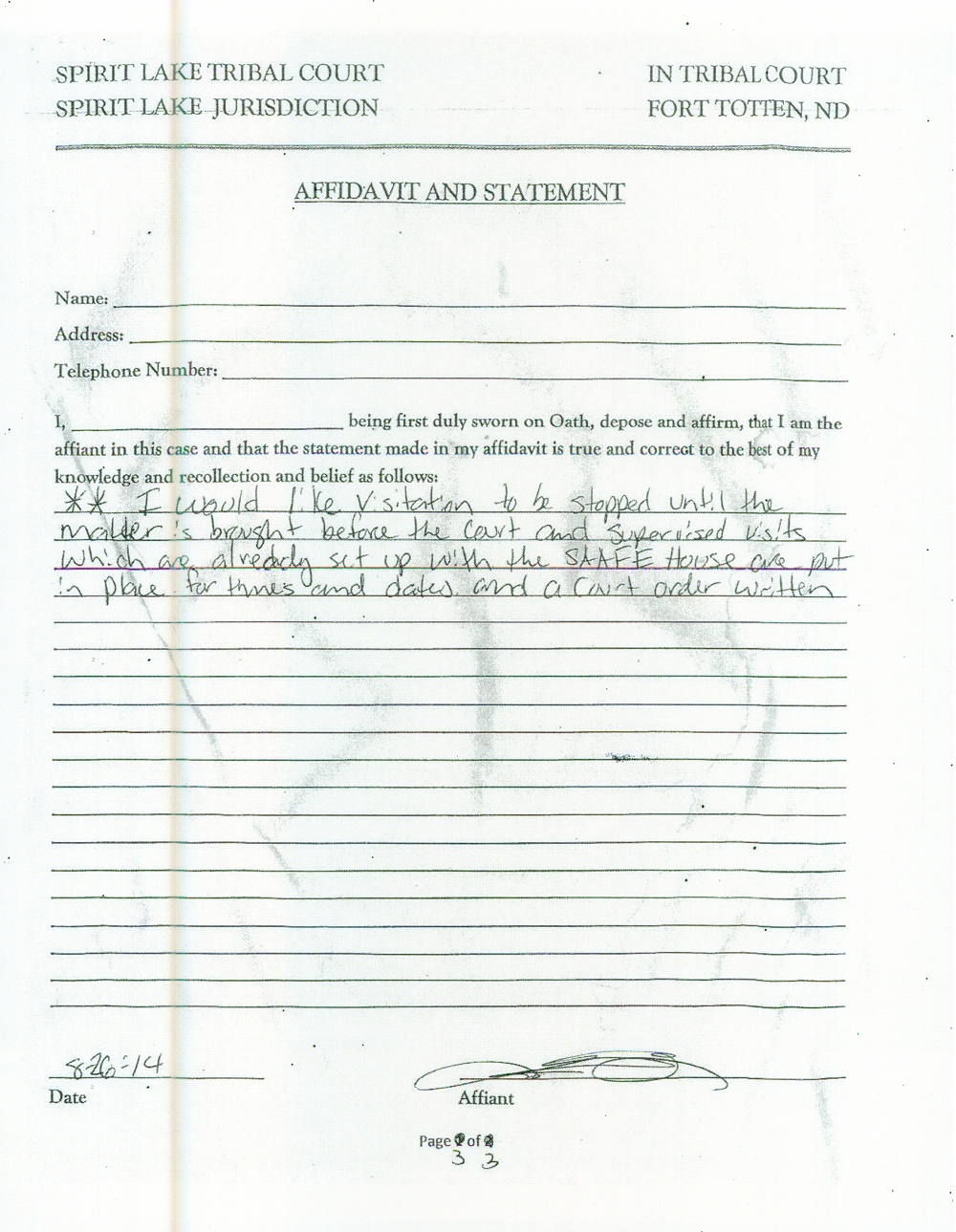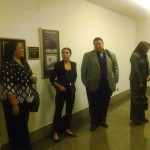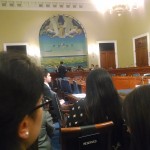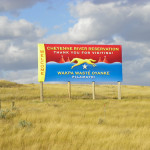By Elizabeth S. Morris
A Thesis Submitted to the Faculty of the Helms School of Government in Candidacy for the Degree of Master of Arts in Public Policy
https://digitalcommons.liberty.edu/masters/591
‘Although the ICWA has some statutory safeguards to prevent misuse, numerous families continue to be hurt by the law.’
Preface
My
husband and I began our lives together in a symbiotic alcoholic-enabler
relationship in the late 70’s. With our family on the edge of self-destruction
in 1987, my husband, an enrolled member of the Minnesota Chippewa Tribe, born
and raised on the Leech Lake reservation, had a transformational experience
which changed his worldview and led him to take our family in a new
direction.
Having watched many of his relatives suffer within the
reservation system, he began to see reservation violence and crime as an
outcome of current federal Indian policy more than it was about past policy.
This led us to forming an advocacy in the late 90’s for families hurt by
federal Indian policy. We did our best
to share hope and life, as inadequate as we were, by assisting extended family
in our home, neighbors in our community, and strangers across the nation. We
never did it for money; there was never any money. Everything we did came from
passion for the lives of our children, nieces and nephews, and extended
communities.
Unfortunately, reservation crime, corruption, drug abuse and
violence have continued to increase over the years. My husband has since passed
away and I am a widow, continuing the work we had begun in 1996.
This thesis compiles some of the documented history,
philosophy, and consequences of federal Indian policy. It also includes a
preliminary quantitative causal comparative survey with 1351 participants – 551
of whom identify tribal heritage – and explores the relationship between
differences.
We serve a powerful God with whom all things are
possible. Our job is to serve in the
capacity He has given us, even if we do not understand why, and then enjoy
watching what He does next.
Abstract
This
paper will examine the philosophical underpinnings of current federal Indian
policy and its physical, emotional, and economic consequences on individuals
and communities.
The U.S. Civil Rights Commission found in 1990 that “[T]he Government of the United States has failed to provide civil rights protection for Native Americans living on reservations” (W. B. Allen 1990, 2). As Regan (2014) observes, individuals have been denied full title to their property – and thus use of the property as leverage to improve their economic condition (Regan 2014). Tribal executive and judicial branches have been accused of illegal search and seizures, denial of right to counsel or jury, ex parte hearings and violations of due process and equal protection (W. B. Allen 1990, 3). Violence, criminal activity, child abuse and trafficking are rampant on many reservations (DOJ 2018). Largely because of crime and corruption, many have left the reservation system. The last two U.S. censuses’ report 75% of tribal members do not live in Indian Country (US Census Bureau 2010).
Research suggests current federal Indian policy and the reservation system are built on philosophies destructive to the physical, emotional and economic health of individual tribal members. This paper contends that allowing property rights for individual tribal members, enforcing rule of law within reservation systems, supporting law enforcement, and upholding full constitutional rights and protections of all citizens would secure the lives, liberties and properties of affected individuals and families.
Introduction
For almost 200 years the U.S. federal
government has claimed wardship over members of federally recognized Indian
tribes. Yet, despite the nineteenth
century U.S. federal court rulings that propagated this view, disagreement
continues as to whether tribes located within the United States are sovereign,
whether Congress has plenary power over them, and whether individual tribal
members have U.S. Constitutional rights:
- Some say the nineteenth century U.S. Supreme Court cases
known as the ‘Marshall Trilogy’ contradict tribal sovereignty. Others say they uphold it.
- Some say treaties promise a permanent trust relationship.
Others point out that most treaties have clearly specified final payments of
federal funds and benefits and were written and signed with clear intent for
gradual assimilation.
- Some say the Constitution
never gave Congress anything more than the power to regulate trade with tribes.
Others claim the Constitution not only gave Congress total and exclusive
plenary power to decide every aspect of life in Indian Country – but by
unstated extension, gave the executive branch this power as well.
- Some argue that the
Constitution never had authority over tribes or tribal members. Others cite the
Constitution when seeking judicial redress.
- Some tribal officials
argue that international law should not have been forced upon non-European
cultures that had no say in it. Others point to natural law and international
law – the grounds for treaties between nations – as basis for uninterrupted
tribal sovereignty.
Inherent, retained tribal
sovereignty was reality for tribal governments prior to the formation of the
United States and in the immediate years following its birth, but is not
reflected in case law from the 1800s and much of the 1900s. By the time of
Andrew Jackson, the United States had taken a position of control. Further,
over the last two centuries, the vast majority of tribal leaders accepted large
payments for land, accepted federal trust benefits, and submitted to federal
government’s de facto power over them.
Throughout history and
every heritage, various men have coveted power over others. Today, tribal governments, while accepting
and playing into Congress’ claim of plenary power, have themselves, also,
claimed exclusive jurisdiction and authority over unwilling citizens. Tribal governments regularly lobby and petition both
Congress and the White House to codify tribal jurisdiction over the lives,
liberty and property of everyone within reservation boundaries as well as some
outside reservation boundaries. While
claiming exclusive jurisdiction, tribal governments have requested and given
blessing for the federal government to manage children of tribal heritage –
asking Congress to write the Indian Child Welfare Act and the executive branch
to write federal rules governing the placement of every enrollable child in
need of care. Some tribal governments and supportive entities have gone further
– asking even governors and state legislators to expand on and strengthen
control over children with heritage.
Often cited as justification for the ICWA is a 1998 pilot
study by Carol Locust, a training director at the Native American Research and
Training Center at the University of Arizona College of Medicine. Locust’s study is said to have shown that
“every Indian child placed in a non-Indian home for either foster care or
adoption is placed at great risk of long-term psychological damage as an adult” (Locust, Split
Feather Study 1998).
Referring to the condition as the “Split-feather Syndrome,” Locust
claims to have identified “unique factors of Indian children placed in
non-Indian homes that created damaging effects” (Locust, Split
Feather Study 1998).
The Minnesota Department of Human Services noted “an astonishing 19 out
of 20 Native adult adoptees showed signs of “Split-feather syndrome” during
Locust’s limited study (DHS 2005).
“Unfortunately,” according to Bonnie Cleaveland, PhD ABPP, “the study was implemented so poorly that we cannot draw conclusions from it.” Only twenty adoptees with tribal heritage – total – were interviewed. All were removed from their biological families and placed with non-native families. There were no control groups to address other variables. According to Cleaveland:
Locust asserts that out-of-culture removal causes substance abuse and psychiatric problems. However, she uses no control group. She doesn’t acknowledge the high rates of trauma, psychiatric and substance abuse among AI/AN people who remain in their culture and among the population of foster children. These high rates of psychosocial problems could easily account for all of the symptoms Locust found in her subjects
(Cleaveland 2015).
Cleaveland concluded, “Sadly, because many judges and attorneys, and even
some caseworkers and other professionals, are not familiar with the research,
results that may be very wrong are leading to the wrong outcomes for children” (Cleaveland
2015). While supporters of ICWA cite “Split-feather
Syndrome” as proof the ICWA is in the best interest of children, many children
have been hurt by application of the law.
Questions that need more
extensive study include whether children who were adopted into
non-Indian families as children show greater problems with self-identity,
self-esteem, and inter-personal relationships than do their peers. Are the ties between children who have tribal
heritage and their birth families and culture stronger than that of their
peers, no matter the age at adoption?
Other considerations include whether all tribal members support federal
policies that mandate their cases be heard only in tribal courts and whether a
percentage of persons of tribal heritage believe federal Indian policy
infringes on their life, liberty and property.
The central concern of this paper is how
current federal Indian policy has affected the lives, liberty and property of
those who have tribal heritage – most specifically the Indian Child Welfare
Act. Through research of the historical foundations
of federal Indian policy and a nation-wide comparative survey of family
dynamics, this paper will attempt to answer these and other questions.
READ FULL TEXT – https://digitalcommons.liberty.edu/masters/591
Citation
Morris, Elizabeth S. The Philosophical Underpinnings and Negative Consequences of the Indian Child Welfare Act. Master Thesis, Helms School of Government, Liberty University, Lynchburg: Digital Commons, 2019, 337.
—————————-
References
Aziz G. Sayigh, Boris V. Babson, A.S. Erickson, Charles S. Dameron, Adam
I.W. Schwartzman, Nicholas P. Desatnick. “The Storied History of
Dartmouth.” The Dartmouth Review, 10 2006.
25 U.S
Code. “15 § 1302.” 1968.
Ablavsky,
Gregory. “Beyond the Indian Commerce Clause.” Yale Law Journal
124 (2015): 1012, 1017.
Abourezk,
James G. THE OCCUPATION OF WOUNDED KNEE, 1973 – American Indian Movement.
House of Representatives, Wounded Knee: U.S. Government, 1972.
ACF. Tribal
Child Counts. Washington DC: Child Care Bureau, Office of Family
Assistance, 2007.
Adoption
of Baby Boy L. No. 53,592 (Kansas Supreme Court, April 3,
1982).
Adoptive
Couple v. Baby Girl. No. 12–399 (U.S.
Supreme Court, June 25, 2013).
Ahrens,
Kym R., Michelle M. Garrison, and Mark E. Courtney. “Health Outcomes in
Young Adults From Foster Care and Economically Diverse Backgrounds.” American
Academy of Pediatrics, 2014: 10.
AIPRC. American
Indian Policy Review Commission Final Report, Vol. I. report to provide
foundation for understanding of federal Indian policy, law, and history,
American Indian Policy Review Commission,, Congress, Washington DC: GPO;
Eric.Ed.gov, 1977, 593.
Allen,
William B. Commissioner. The Indian Civil Rights Act: United States
Commission on Civil Rights Statement. U.S. Commission on Civil Rights, U.S.
Congress, Washington DC: USCCR, 1990, 16.
Allen,
William B. “Email Correspondence.” June 8, 2018.
—.
“ICWA Teach-in, Keynote.” Washington DC: CAICW, 10 2010.
Allen,
William. Review of Federal Indian Policy. Havre d’ Grace, MD:
Unpublished, 2010, 25.
Allison
Randall, Chief of Staff. “Baaken violence.” DOJ/Office on Violence
Against Women. washington DC: DOJ, 9 13, 2013.
Ambrose,
of the St John Indians. “Speech at a Conference Held at Watertown, in the
Colony of Massachusetts-Bay July 12, 1776.” Edited by Peter Force. American
Archives. Ser.5 v.1 ([1776] 1837–53): 839.
Arkes,
Hadley. “The Natural Law Challenge.” Harvard Journal of Law &
Public Policy (Harvard Society for Law and Public Policy, Inc) 36, no. 3
(Summer 2013): 961-975.
Attorney
General’s Advisory Committee. Committee on American Indian and Alaska Native
Children Exposed to Violence: Ending Violence so Children can Thrive. Final
Full Report, Office of Juvenile Justice and Delinquency Prevention, Office of
Justice Programs, Deptartment of Justice, Washington DC: Dept. of Justice,
2014, 257.
Avalon
Project. “Treaties Between the United States and Native Americans.” Yale
Law School, Lillian Goldman Law Library. 2008.
http://avalon.law.yale.edu/subject_menus/ntreaty.asp (accessed June 22, 2016).
Banner,
Stuart. How the Indians Lost Their Land: Law and Power on the Frontier.
2nd. Cambridge: Belknap Press, 2007.
Bastiat,
Fredrick. The Law. New York: The Foundation for Economic Education,
1998.
Bellamy,
Jennifer L., Geetha Gopalan, and Dorian E. Traube. “A National Study of
the Impact of Outpatient Mental Health Services for Children in Long Term
Foster Care.” Clinical Child Psychology and Psychiatry (University
of Chicago) 15, no. 4 (2010): 467-79.
Bender,
Albert. “South Dakota Commits Shocking Genocide Against Native Americans
by Abducting Their Children.” ICWA INFO. Edited by Native American
Rights Foundation. Native American Rights Foundation. February 20, 2015.
http://icwa.narf.org/news/1747 (accessed June 22, 2016).
Benedict,
Jeff. Without Reservation. New York: Harper, 2000.
Bernholz,
Charles D., Laura K. Weakly, Brian L. Pytlik Zillig, and Karin Dalziel.
“As long as grass shall grow and water run: The treaties formed by the
Confederate States of America and the tribes in Indian Territory, 1861.” Treaties
Portal. Love Memorial Library. n.d.
http://treatiesportal.unl.edu/csaindiantreaties/.
BIA. Bureau
of Indian Affairs (BIA). 2019. https://www.bia.gov/bia (accessed 4 16,
2019).
—.
“Indian Child Welfare Act Proceedings.” Federal Register, June
14, 2016: 369.
—. FREQUENTLY
ASKED QUESTIONS. 9 2, 2016. http://www.bia.gov/FAQs/ (accessed Sept 3,
2016).
—.
“ICWA Guidelines teleconference.” NWX-DEPT OF INTERIOR-NBC (US).
Washington DC: Department of Interior, 2015. 1-114.
—.
“Indian Child Welfare Act.” US Deptartment of the Interior: Indian
Affairs. June 8, 2016.
http://www.indianaffairs.gov/WhoWeAre/BIA/OIS/HumanServices/IndianChildWelfareAct/index.htm
(accessed June 8, 2016).
BIA. Indian
Entities Recognized and Eligible To Receive Services From the United States
Bureau of Indian Affairs. Notice, Bureau of Indian Affairs, Department of
Interior, DC: Federal Government, 2003, 68180 -68184 (5 pages).
Bickel,
Alexander M. “Citizenship in the American Constitution.” Faculty
Scholarship Series, 1973.
Bird,
Allyson. Broken Home: The Save Veronica story. News Article, Charleston:
Charleston City Paper, 2012.
Black,
Henry Campbell. Black’s Law Dictionary Free. 2. The Law Dictionary,
2018.
Blackstone,
William. Blackstone’s Commentaries. Philadelphia: William Young Birch and
Abraham Small, 1803.
Bolick,
Clint. “Native American Children: Separate But Equal?” Hoover
Institution. Oct 27, 2015.
http://www.hoover.org/research/native-american-children-separate-equal
(accessed July 27, 2016).
Bordewich,
Fergus M. Killing the White Man’s Indian: Reinventing Native Americans at
the End of the Twentieth Century. New York: Bantam Doubleday Dell
Publishing Group, 1996.
Bouvier,
John. A Law Dictionary, Adapted to the Constitution and Laws of the United
States and of the Several States of the American Union. 6. J.B. Lippincott
& Company, 1856.
Bowdoin,
James. “To George Washington from James Bowdoin, 30 July 1776.” Founders
Online – National Archives. Edited by Philander D. Chase. University Press
of Virginia. July 30, 1776. http://founders.archives.gov/documents/Washington/03-05-02-0378
(accessed 9 24, 2018).
Brackeen
v Zinke. 4:17-cv-00868-O (US District Court,
Northern District Of Texas, Fort Worth Division, 10 4, 2018).
Braund,
Kathryn. “Summer 1814: The Treaty of Ft. Jackson ends the Creek War.”
National Park Service. 8 15, 2017.
https://www.nps.gov/articles/treaty-of-fort-jackson.htm (accessed 3 11, 2019).
Brief
for Amicus Curiae of Thomas Lee Morris, Elizabeth S. Morris and Roland J.
Morris, Supporting Respondent. 03-107 (United States
v. Billy Jo Lara, On Writ of Certiorari, December 15, 2003).
Brief of
Amicus Curiae Christian Alliance for Indian Child Welfare in Support of
Plaintiffs-Appellees and Affirmation (Brackeen v. Zinke, 2018).
4:17-CV-00868 (U.S. Court of Appeals for 5th Circuit, February 2019).
Brief of
Amicus Curiae Confederated Tribes and Bands of the Yakama Nation in Support of
the Respondent. 16-1498 (Supreme Court of the United
States, Oct 30, 2018).
Brown,
Thomas. “Did the U.S. Army Distribute Smallpox Blankets to Indians?
Fabrication and Falsification in Ward Churchill’s Genocide Rhetoric.” Plagiary:
Cross‐Disciplinary Studies in Plagiarism, Fabrication, and Falsification,
2006: 100-129.
CAICW.
“Administrator.” Letters from Families. Ronan: Christian
Alliance for Indian Child Welfare, June 9, 2004.
—.
“Administrator.” Growing Crime, Changing Dynamics. Fargo:
Christian Alliance for Indian Child Welfare, June 27, 2014.
—.
“Testimony from the Christian Alliance for Indian Child Welfare to the
House Subcommittee on Indian and Alaska Native Affairs: Child Protection and
the Justice System on the Spirit Lake Indian Reservation.” CAICW.org.
June 24, 2014.
TESTIMONY: CHILD PROTECTION AND THE JUSTICE SYSTEM ON THE SPIRIT LAKE INDIAN RESERVATION:
(accessed May 19, 2016).
CAICW. The
New ICWA Rules. Public Policy, Fargo: CAICW, 2016.
Cano,
Regina Garcia. 2 Malnourished Girls Found on South Dakota Reservation.
News, Seattle: Seattle Times, 2016.
CDC.
“The Adverse Childhood Experience Study (ACE).” Centers for
Disease Control and Prevention. US Dept of Health and Human Services. 2019.
https://www.cdc.gov/violenceprevention/childabuseandneglect/acestudy/index.html
(accessed 3 2018).
Center
for Native American Youth. Fast Facts on Native American Youth and Indian
Country. Statistical Facts, Washington DC: Aspen Institute, 2014.
Center
for Native American Youth. Fast Facts on Native American Youth and Indian
Country. Statistical Facts, Washington DC: Aspen Institute, 2011.
Cherokee
Nation. Tribal Citizenship. 2019.
https://www.cherokee.org/Services/Tribal-Citizenship (accessed 5 2, 2019).
Cherokee
v. Georgia. 30 U.S. 1 (U.S. Supreme Court, 12 31,
1831).
Chief
Joseph, of the Nez Perce. “The Surrender of Chief Joseph of the Nez Perce,
Montana Territory.” Civil Rights and Conflict in the United States:
Selected Speeches (Lit2Go Edition). October 5, 1877.
http://etc.usf.edu/lit2go/185/civil-rights-and-conflict-in-the-united-states-selected-speeches/4856/the-surrender-of-chief-joseph-of-the-nez-perce-montana-territory-october-5-1877-chief-josephs-own-story/
(accessed November 7, 2018).
Chief
Seattle. “Speech Cautioning Americans to Deal Justly with His
People.” Civil Rights and Conflict in the United States: Selected
Speeches. 1 12, 1854.
Child
Welfare Information Gateway. “Determining the Best Interest of the
Child.” Child Welfare Information Gateway. HHS/ ACYF/ACF Children’s
Bureau. 2016. https://www.childwelfare.gov/pubPDFs/best_interest.pdf (accessed
3 11, 2017).
Churchill,
Ward, interview by Joshua Frank. Accusations and Smear: An Interview with
Professor Ward Churchill, (Part 1 of 5) (9 19, 2005).
Cleaveland,
Bonnie PhD ABPP. Split Feather: An Untested Construct. Scientific
Analysis, Charleston: Icwa.co, 2015.
Cohen,
Felix S. “Colonialism: A Realistic Approach.” Ethics (The
University of Chicago Press) 55, no. 3 (4 1945): 167-181.
—. Handbook
of Federal Indian Law. 1942. Albuquerque, NM: University of New Mexico
Press, [1942] 1971.
Cohen,
Felix S. “Original Indian Title.” Edited by Lucy Kramer Cohen. Minn.
L. Rev. (Yale U. Press) 32 (1947): 28.
Congress.
“A Declaration by the Representatives of the United Colonies of
North-America.” Journal of the Proceedings of the American Continental
Congress, May 1775: 120.
Cross,
Suzanne L, Angelique G Day, and Lisa G Byers. “American Indian Grand
Families: A Qualitative Study Conducted with Grandmothers and Grandfathers Who
Provide Sole Care for Their Grandchildren.” Journal of Cross-Cultural
Gerontology 25, no. 4 (12 2010): 371–383.
CTWS.
“Declaration of Sovereignty.” Confederated Tribes of the Warm
Springs Tribe of Oregon. 2016.
Declaration of Sovereignty
(accessed 4 8, 2019).
Curry,
Brett W. “Architect of Justice: Felix S. Cohen and the Founding of
American Legal Pluralism, by Dalia Tsuk Mitchell.” Law and Politics
Book Review, Sept 2007: 764-767.
Dawes
Commission. Congressional Commission, Washington DC: Congress, 1895.
De
Venter, M., K. Demyttenaere, and R. Bruffaerts. “The relationship between
adverse childhood experiences and mental health in adulthood. A systematic
literature review].” Tijdschr Psychiatry 55, no. 4 (2013): 259-68.
DHHS/IHS.
Trends in Indian Health. Statistics, Washington DC: Indian Health
Service, 1997.
DHS. ICWA
from the Inside Out: ‘Split Feather Syndrome’. Article, Dept of Human
Services, State of Minnesota, St. Paul: DHS, 2005.
DOI. Cohen’s
Handbook of Federal Indian Law. Washington DC: United States Government
Printing Office, 1958.
DOI/BIA.
“Guidelines for State Courts and Agencies in Indian Child Custody
Proceedings.” Federal Register / Vol. 80, No. 37 /. 2 25, 2015.
http://www.bia.gov/cs/groups/public/documents/text/idc1-029447.pdf (accessed
March 15, 2015).
DOI-BIA.
Indian Population and Labor Force Report. Statistics, Bureau of Indian
Affairs, Department of Interior, Washigton DC: Department of Interior, 2003.
DOJ.
“Environment and Natural Resources Division.” The United States
Department of Justice. 5 24, 2015.
https://www.justice.gov/enrd/timeline-event/congress-passes-first-indian-trade-and-intercourse-act
(accessed 2 10, 2018).
—.
“Indian Country Justice Statistics.” Office of Justice Programs:
Bureau of Justice Statistics. 4 30, 2018. https://www.bjs.gov/index.cfm?ty=tp&tid=200000
(accessed 8 19, 2018).
—.
“Lead up to the Indian Claims Commission Act of 1946.” United
States Deptartment of Justice. 5 12, 2015.
https://www.justice.gov/enrd/lead-indian-claims-commission-act-1946 (accessed 6
1, 2019).
—.
“Transcript from the First Hearing of the Advisory Committee of the
Attorney General’s Task Force.” American Indian/Alaska Native Children
Exposed to Violence. Bismarck: Department of Justice, 2013. 46.
Dudley,
Richard G. Jr. MD. “Childhood Trauma and Its Effects: Implications for
Police.” Edited by Harvard Kennedy School. New Perspectives in Policing
Bulletin ( U.S. Department of Justice, National Institute of Justice),
2015: 1-22.
Duro v.
Reina. 495 U.S. 676 (U.S., 1990).
Eaglewoman,
Angelique, and G. William Rice. “American Indian Children and U.S. Indian
Policy.” Tribal Law Journal 16 (2016): 1-29.
Enlow,
Michelle Bosquet, Emily Blood, and Byron Egeland. “Sociodemographic risk,
developmental competence, and PTSD symptoms in young children exposed to interpersonal
trauma in early life.” Journal of Traumatic Stress (International
Society for Traumatic Stress Studies), 2013: 686-694.
Executive
Office of the President. Native Youth Report. Policy Brief, Washington
DC: The White House, 2014.
FBI.
“Indian Country Crime.” FBI.gov. 2016.
https://www.fbi.gov/investigate/violent-crime/indian-country-crime (accessed
July 27, 2016).
Feldon,
Gai. Constitutional Government and Free Enterprise. Dubuque: Kendall
Hunt Pub Co, 2014.
Felitti
VJ, Anda RF, Nordenberg D, Williamson DF, Spitz AM, Edwards V, Koss MP, Marks
JS. “Relationship of Childhood Abuse and Household Dysfunction to many of
the Leading Causes of Death in Adults: The Adverse Childhood Experiences (ACE)
Study.” American Journal of Preventative Medicine (National
Institutes of Health) 14, no. 4 (5 1998): 245-58.
Fiddler,
Mark. “Adoptive Couple V. Baby Girl, State ICWA Laws, and Constitutional
Avoidance.” Minnesota State Bar Association Family Law Forum
(Minnesota State Bar) 22, no. 2 (Spring 2014): 10.
—.
“Existing Indian Family Doctrine.” Letter to supporters.
Minneapolis, Minnesota: Indian Child Welfare Law Center, 2 21, 2004.
Fineday,
Anita. The ICWA Expert Witness and the Role of the Attorney for the Parent.
Powerpoint, Casey Family Programs, Seattle: Casey Family Programs, 2012.
Flatten,
Mark. Death on a Reservation. Phoenix: Goldwater Institute, 2015.
Fletcher,
Matthew L.M. “Anishinaabe Law and the Round House.” Albany
Government Law Review, 2017: 24.
Fletcher,
Matthew L.M. “The Iron Cold of the Marshall Trilogy.” N.D. Law Rev
(Michigan State University College of Law) 82 (2006): 627.
FOCSE. Tribal
& State to Establish & Enforce Child Support. Publication,
Washington DC: Federal Office of Child Support Enforcement , 2005.
Fort,
Kate. Initial Observations on the ICWA Regulations. Blog, Indigenous Law
and Policy Center, Michigan State University College of Law, Indigenous Law and
Policy Center, 2016.
Fort,
Kathryn E. 2018 ICWA by the Numbers. Statistics, Indigenous Law and
Policy Center, Michigan State University College of Law, Turtle Talk, 2019.
Fort,
Kathryn E. ICWA by the Numbers 2015. Statistics, Indigenous Law and
Policy Center, Michigan State University College of Law, Turtle Talk, 2016.
Fort,
Kathryn E. ICWA by the Numbers 2016. Statistics, Indigenous Law and
Policy Center, Indigenous Law and Policy Center, Turtle Talk, 2017.
Fort,
Kathryn E. ICWA by the Numbers 2017. Statistics, Indigenous Law and
Policy Center, Michigan State University College of Law, Turtle Talk, 2018.
Franson,
Janet, interview by Elizabeth Morris. Homicide Investigator (Ret), Founder,
Lost and Missing in Indian Country (9 7, 2016).
GAO. Review
of American Indian Policy Review Commission. Accounting and Financial
Reporting, General Government Division, Congress, Washington DC: General
Accounting Office, 1977, 14.
General
Congress. “Declaration of Independence.” University of Oklahoma
College of Law. July 4, 1776. http://www.law.ou.edu/ushistory/decind.shtml.
George,
Robert P. “Natural Law, the Constitution, and the Theory and Practice of
Judicial Review.” Fordham Law Review 69, no. 6 (2001): 2269.
Gerard,
Forrest J. Assistant Secretary of Interior. Letter, Department of
Interior, Washington DC: House of Representatives, 1978, 32.
Goldwater
Institute. GOLDWATER INSTITUTE FILES CLASS ACTION LAWSUIT AGAINST PARTS OF
INDIAN CHILD WELFARE ACT. July 7, 2015.
http://goldwaterinstitute.org/en/work/topics/constitutional-rights/equal-protection/goldwater-institute-files-class-action-lawsuit-aga/
(accessed June 20, 2016).
Gould, L
Scott. “The Congressional Response to Duro v. Reina: Compromising Sovereignty
and the Constitution.” Edited by UC Davis Law School. U.C. Davis Law
Review 28, no. 1 (1994): 53, 63 69-75.
GWIF. Foster
Care Statistics 2016. U.S. Dept of Health and Human Services’
Administration for Children and Families; Children’s Bureau. 2018.
https://www.childwelfare.gov/pubPDFs/foster.pdf#page=1&view=Introduction
(accessed 3 29, 2019).
Haas,
Theodore H. “Ten Years of Tribal Government Under I.R.A.” DOI.gov.
United States Indian Service. 1947.
https://www.doi.gov/sites/doi.gov/files/migrated/library/internet/subject/upload/Haas-TenYears.pdf
(accessed 5 2, 2019).
Hagedorn,
Nancy L. “”A Friend to go between Them”: The Interpreter as
Cultural Broker during Anglo-Iroquois Councils, 1740-70.” Ethnohistory
(Duke University Press) 35, no. 1 (1988): 60-80.
Hagen v.
Utah. (US Supreme Court, 1994).
Hallie
Bongar White, Jane Larrington. “INTERSECTION OF DOMESTIC VIOLENCE AND
CHILD VICTIMIZATION IN INDIAN COUNTRY.” Justice.gov. April 21,
2014. https://www.justice.gov/sites/default/files/defendingchildhood/legacy/2014/04/21/intersection-dv-cpsa.pdf
(accessed July 28, 2016).
Harper,
Fowler Vincent. “Natural Law in American Constitutional Theory.” Michigan
Law Review 26, no. 62 (1927): 62-82.
Hart,
H.L.A. “Positivism and the Separation of Law and Morals.” Harvard
Law Review (The Harvard Law Review Association) 71, no. 4 (1958): 593-629.
Hazard,
S., ed. Pennsylvania Archives (1st Series). Vol. 3. Philadelphia, PA:
Joseph Severns, 1852.
Herman,
Ellen. Adoption Statistics. Department of History, University of Oregon.
2 24, 2012. https://pages.uoregon.edu/adoption/topics/adoptionstatistics.htm
(accessed 3 29, 2019).
Hintz,
James R. “Wilson v. Marchington: The Erosion of TribalCourt Civil
Jurisdiction in the Aftermath of Strate v.A-1 Contractors.” Public Land
and Resources Law Review, 1999: 145.
Holder,
Eric. “Attorney General Eric Holder Delivers Remarks During the White
House Tribal Nations Conference.” Justice News. Washington DC, 12
3, 2014.
Horwitz,
Sara. “The hard lives – and high suicide rate – of Native American
children on reservations.” National Security. March 9, 2014.
https://www.washingtonpost.com/world/national-security/the-hard-lives–and-high-suicide-rate–of-native-american-children/2014/03/09/6e0ad9b2-9f03-11e3-b8d8-94577ff66b28_story.html
(accessed July 27, 2016).
Hyland,
Duane. Running Head: Considering Indian Country. Topic Proposal, Rapid
City: NFSH.org, 2014.
ICC. Indian
Claims Commission Final Report. Final Commission Report, United States,
Washington DC: GPO, 1978.
IHS. Indian
Health Service. 2019. https://www.ihs.gov/aboutihs/ (accessed 3 28, 2019).
In re
Alexandria Y. G018179 (Fourth Dist., Div. Three, 5 31,
1996).
In re
Bridget R. B195282 (Cal. App. 4th, 41 Cal. App. 4th
1483 January 19, 1996).
In re
Santos Y. B144822 (Cal. App, 4th, 92 Cal.App.4th
1274 2001).
In re
Z.R. and L.R., adoptive parents v . 27-JV-FA-17-117 (MN
Court of Appeals, 11 2017).
Indian
Country Child Trauma Center. Demographics. Statistical Facts, Oklahoma
City: Indian Country Child Trauma Center, 2005.
Indian
Treaties Printed by Benjamin Franklin, 1736–1762.
Philadelphia, PA: The Historical Society of Pennsylvania, 1938.
Jackson,
Andrew. “President Jackson’s Message to Congress “On Indian
Removal” .” Records of the United States Senate, 1789 ‐ 1990
(National Archives and Records Administration (NARA]) Record Group 46 (Dec.
1830).
Jackson,
Jack C. “Director of Government Affairs, National Congress of American
Indians (NCAI).” National Conference of American Indians. February
12, 1999.
http://www.ncai.org/ncai/resource/documents/governance/cvrightcensus.htm
(accessed 2007).
James
Bell Associates, Inc. “Analysis of Funding Resources and Strategies Among
American Indian Tribes.” Administration of Children and Families.
March 31, 2004. http://www.acf.hhs.gov/sites/default/files/opre/fund_res.pdf
(accessed June 22, 2016).
Janney,
Samuel M. The Life of William Penn. 2nd. Philadelphia: Lippincott,
Grambo, 1852.
Jefferson,
Thomas. “To Major John Cartwrigt Monticello, June 5, 1824.” American
History: From Revolution to Reconstruction and Beyond. Edited by University
of Groningen. 1824.
http://www.let.rug.nl/usa/presidents/thomas-jefferson/letters-of-thomas-jefferson/jefl278.php
(accessed June 30, 2016).
Jerry
Gardner, Executive Director Tribal. “Tribal Law & Policy
Institute.” Santa Monica: ACF, 8 2, 2013.
Johnson
v. M’Intosh. 21 U.S. 543; 1823 U.S. 293; 5 L. Ed. 681;
8 Wheat. 543 (U.S., 2 1823).
Jones,
B.J. Overview of the Indian Child Welfare Act. 2006.
http://www2.mnbar.org/sections/children/history.pdf (accessed April 29, 2007).
Jore,
Rick, interview by Elizabeth Morris. Former Montana State Representative
(11 15, 2016).
Kaplan,
Sarah. “Native American couple sues to let their child be adopted by a
white family.” Washington Post. June 10, 2015.
https://www.washingtonpost.com/news/morning-mix/wp/2015/06/10/native-american-couple-sues-to-let-their-child-be-adopted-by-a-white-family/
(accessed June 21, 2016).
Karnowski,
Steve. Feds Say Native Mob Gang Dented but Work Remains. Minneapolis:
ABC News, 2013.
Katz,
Colleen C, Mark E Courtney, and Elizabeth Novotny. “Pre-foster Care
Maltreatment Class as a Predictor of Maltreatment in Foster Care.” Child
and Adolescent Social Work Journal 34, no. 1 (2 2017): 35-49.
Kelley,
Marylouise (ACF). “Service needs in rural North Dakota and Montana.” Family
Violence Prevention and Services Program Director. Washington DC: ACF, 9
23, 2013.
Kelly,
John. “38 Years After ICWA, Feds to Collect Data on Native American Foster
Youth.” The Chronicle of Social Change, April 8, 2016.
Kennerson,
Marilyn (ACF). “Changes at ACF: Our own takes Casey position at
ACF/BIA.” Washington DC: ACF, 8 5, 2013.
Kingfisher,
Billie J. Jr. Dogma: Felix S. Cohen, The Indian Law Survey and the Spanish
Model. Dissertation, Masters of Arts in History, Oklahoma State University,
Graduate College, 2016.
Kinney,
Adam F. “The Tribe, the Empire, and the Nation: Enforceability of
Pre-Revolutionary Treaties with Native American Tribes.” Case Western
Reserve Journal of International Law (Case Western Reserve University
School of Law) 39, no. 3 (2007-2008): 897.
Krakoff,
Sarah. “They Were Here First: American Indian Tribes, Race, and the
Constitutional Minimum.” Stanford Law Review 69 (Feb 2017):
491-548.
Kunesh,
Patrice H. A Call for an assessment of the Welfare of Indian Children in
South Dakota. Article, Harvard Kennedy School (HKS); University of South
Dakota, Harvard University, Vermillion: South Dakota Law Review, Vol. 52, No.
247, 2007.
LaBeau
v. Dakota. 2:92-CV-203 (US Federal District Court:
West. Dist. Mich., March 17, 1993).
Lawrence,
William J. “In Defense of Indian Rights.” Beyond the Color Line;
New Perspectives on Race and Ethnicity in America (Hoover Institution
Press), 2002: 391-404.
Legal Inf
Inst. Wex Legal Dictionary. Ithaca: Cornell Law School, 2019.
LexisNexis.
Cohen’s Handbook of Federal Indian Law. LexisNexis, 2005.
Locust,
Carol. Split Feather Study. Pilot Study, Native American Research and
Training Center, University of Arizona College of Medicine, Tucson: Pathways,
1998.
—.
“Split Feathers Study.” American Indian Adoptees. n.d.
https://blog.americanindianadoptees.com/p/split-feathers-study-by-carol-locust.html
(accessed 2 5, 2018).
—.
“Split Feathers: Adult American Indians Who Were Placed In Non-Indian
Families As Children.” Native Canadian. n.d.
http://nativecanadian.ca/Native_Reflections/split_feather_syndrome.htm
(accessed 2 5, 2018).
Locust,
Carol. Training Director. Pilot Study, Native American Research and
Training Center , University of Arizona College of Medicine, Tucson: Pathways,
1998.
Lynch,
Judy D. “Indian Sovereignty and Judicial Interpretations of the Indian
Civil Rights Act.” Washington University Law Review 1979, no. 3,16
(1979): 897.
MacDonald,
Peter. “White House Address on the Navajo Code Talkers.” American
Rhetoric, Online Speech Bank. Washington DC, Nov. 27, 2017.
Malone,
Tim. The Role of Indian Tribes in our Constitutional System – Two Persistent
Problems. Conference, Olympia: Unpublished, 1988.
Margold,
Nathan R. “Wheeler-Howard Act–Interpretation” Question 9.” Op.
Sol. I.D. Ind. Aff 1917-1974 1 (1934): 484, 490-491.
Marston,
Blythe W. “Alaska Native Sovereignty: The Limits of the Tribe-Indian
Country Test.” Cornell International Law Journal 17, no. 2 (1984):
33.
Martin,
Kenneth. “Thomas Sullivan.” Indian Affairs. Washington DC:
Indian Affairs, 11 22, 2013.
Mcmullen,
Marrianne (ACF). “Region 8 damaging tribal relations.” Spirit
Lake. Washington DC: ACF, 11 1, 2013.
McMullen,
Marrianne. “Decision on Proposed Removal.” Memorandum.
Washington DC: ACF, 5 6, 2016.
McNeil,
Kent. “Sovereignty and Indigenous Peoples in North America.” Articles
and Book Chapters (Osgoode Hall Law School of York University) 22, no. 2
(2016): 25.
McWilliams,
Paul. “English Common Law: Embodiment of the Natural Law.” The
Western Australian Jurist 1 (2010): 128-131.
Means,
Russell. “Statement to the Senate Special Committee on Indian
Affairs.” American Rhetoric, Online Speech Bank. Washington DC,
Jan. 30, 1989.
Meggitt,
Jane. Government Money for Native Americans. Online, Bisfluent, Leaf
Group Ltd, 2017.
Meyers,
Peter C. “Frederick Douglass’s America: Race, Justice, and the Promise of
the Founding.” First Principle Series, Jan 11, 2011, 35 ed.: 18.
Michael
R. Tilus, PsyD, MP (HHS Public Health). “Letter of Grave Concern: Spirit
Lake Tribal Social Services Grievances.” To Ms. Sue Settle, Chief, Dpt
of Human Services, BIA. Devils Lake, North Dakota, March 3, 2012.
Miles v.
Family Court for Jud’l Dist of Chinle. (Navajo Nation
Supreme Court, Arizona January 2008).
Mission
Indian Agency. “The Wheeler-Howard Bill – Questions and Answers.” Bulletin.
Riverside, CA, April 16, 1934.
Mississippi
Choctaw Indians v. Holyfield . 87-980 (U.S. Supreme
Court, April 3, 1989).
Mitchell,
Donald Craig. Wampum. New York: The Overlook Press, 2016.
MN Dept
Human Serv. “Tribal/State Agreement.” St. Paul, Minnesota: State of
Minnesota, Feb 22, 2007. 37.
Montana
v. United States. (U.S. Supreme Court, 1981).
Moore,
Johnston. “The Misapplication of The Indian Child Welfare Act.” The
Chronicle of Social Change. April 1, 2015. https://chronicleofsocialchange.org/child-welfare-2/the-misapplication-of-the-indian-child-welfare-act/10872
(accessed June 21, 2016).
Morandi,
Larry. “Tribal Trust Lands: From Litigation to Consultation.” States
and Tribes: Building New Traditions, August 2004.
Morris
v. Tanner. 160 Fed. Appx. 600 (9th Cir. 2005)
(PETITION FOR WRIT OF CERTIORARI, April 2006).
Morris,
Elizabeth. Child Abuse within Indian Country. Literature Review, Helm’s
School of Gov’t, Liberty University, Lynchburg: Unpublished, 2016.
Morris,
Elizabeth. Spirit Lake Town Hall, February 27. Primary, witness, Fort
Totten: CAICW, 2013.
Morris,
Elizabeth. The Implications of Native American Heritage on U.S.
Constitutional Protections. Lynchburg: Unpublished, 2017.
Morris,
Roland John. Testimony before the Senate Select Committee on Indian Affairs.
Seattle: Concerning Tribal Jurisdiction, 1998.
Morton
v. Mancari. 417 U.S. 535 (U.S. Supreme Court, 6 17,
1974).
MSU.
“The French and Indian War.” MSU College of Social Science.
Edited by Randall Schaetzl. Dept of Geography, Environment and Spatial Science.
2018. http://www.geo.msu.edu/extra/geogmich/frenchindian_war.html.
NARA.
“Commission to the Five Civilized Tribes (The Dawes Commission),
1893-1914.” National Archoves. June 26, 2017.
https://www.archives.gov/research/native-americans/dawes (accessed 4 26, 2019).
—.
“President Jackson’s Message to Congress “On Indian
Removal”.” Records of the United States Senate, 1789 ‐ 1990;.
National Archives and Records Administration (NARA]. Dec. 6, 1830. (accessed
2018).
Natelson,
Rob. “Constitutional Law Professor.” Email Correspondence. 1
22, 2019.
Natelson,
Robert G. “The Legal Meaning of “Commerce” in the Commerce
Clause.” St. John’s Law Review 80 (2006): 789, 805–06.
Natelson,
Robert. “The Original Understanding of the Indian Commerce Clause.” Denver
University Law Review 85 (2007): 201.
NAU.
“Indigenous Voices of the Colorado Plateau: The Merriam Report of
1928.” Northern Arizona University Library. Northern Arizona University.
2005.
http://library.nau.edu/speccoll/exhibits/indigenous_voices/merriam_report.html
(accessed 6 14, 2019).
NCAI. Trust
Land. 2017.
http://www.ncai.org/policy-issues/land-natural-resources/trust-land (accessed
11 17, 2017).
Newell,
Terry. Statesmanship, Character, and Leadership in America. Basingstoke:
Palgrave Macmillan; 2012, 2012.
Nicolai,
Shanley Swanson, and Merete Saus. “Acknowledging the Past while Looking to
the Future: Conceptualizing Indigenous Child Trauma.” Child Welfare
Journal 92, no. 5 (2012): 110.
NICWA. Testimony
of Sarah L. Kastelic. Testimony, Washington DC: Commission to Eliminate
Child Abuse and Neglect Fatalities, 2015, 1-17.
NICWA,
SAMHSA. “Native Children: Trauma and Its Effects.” Trauma-Informed
Care Fact Sheet. Portland: National Indian Child Welfare Association, April
2014.
NICWA/AAIA.
A Guide to the Supreme Court Decision in Adoptive Couple v. Baby Girl.
White paper, Washington DC: Nat’l Indian Child Welfare Assoc. & Assoc on
American Indian Affairs, 2013, 1-20.
NPS.
“Pushmataha.” National Park Service. Sept. 14, 2017.
https://www.nps.gov/people/pushmataha.htm.
O’Callaghan,
E. B., ed. Documents Relative to the Colonial History of the State of New
York. Albany, NY: Weed, Parsons, and Co.,, 1855.
Occom,
Samson. “Short, Plain, and Honest Account of my Self.” Edited by
Dietrich Reimer Verlag. Bernd Peyer, The Elders Wrote (Dartmouth College
Archives), (1768) 1982: 12-18.
Osborn
v. Bank of the United States. (United States
Supreme Court, 1824).
Otis,
D.S. The Dawes Act and the Allotment of Indian Lands. Edited by Francis
Paul Prucha. University of Oklahoma Press , 1973.
Pommersheim,
Frank. “Written testimony in support of the Indian Child Welfare Act to
the Senate Committee on Indian Affairs.” (104th Cong. 1st Sess.) 1996:
432.
Poore,
James A. “The Constitution of the United States Applies to Indian
Tribes.” Montana Law Review 59, no. 1, Article 4 (Winter 1998):
51-80.
Poore,
James A. “The Constitution of the United States Applies to Indian Tribes:
A Reply to Professor Jensen.” Montana Law Review, 1995/1999: 19.
Prucha,
Frances Paul. American Indian Policy in Crisis: Christian Reformers and the
Indian, 1865-1900. Norman: University of Oklahoma Press, 1976.
Prygoski,
Philip J. “From Marshall to Marshall: The Supreme Court’s changing stance
on tribal sovereignty.” GP Solo Magazine, 7 2, 2015.
Publius.
“Federalist Papers.” Yale Law School: Lillian Goldman School of
Law. 1787. http://avalon.law.yale.edu/18th_century/fed01.asp.
Pushmataha.
“Response to Chief Tecumseh on War Against the Americans.” American
Rhetoric, Online Speech Bank. Mississippi, 1811.
Raab.
“Andrew Jackson.” Raab Collection. 10 15, 2019.
https://www.raabcollection.com/andrew-jackson-autograph/andrew-jackson-signed-sold-president-andrew-jackson-original-instructions
(accessed 3 10, 2019).
Reagan,
Ronald. “Statement on Indian Policy, 1983.” The American
Presidency Project. Edited by John Woolley, & Gerhard Peters. Univ. of
Calif, Santa Barbara. 1 24, 1983. http://www.presidency.ucsb.edu/ws/index.php?pid=41665
(accessed 6 30, 2017).
Regan,
Shawn. “5 Ways The Government Keeps Native Americans In Poverty.” Forbes.
3 14, 2014.
http://www.forbes.com/sites/realspin/2014/03/13/5-ways-the-government-keeps-native-americans-in-poverty/#739501c6cc62
(accessed 12 16, 2016).
Reid v.
Covert. 701 (US Supreme Court, 1956).
Reply
Brief for the United States. 03-107 (U.S. Supreme
Court, Washington DC 2003).
Rice v.
Cayetano. 528 U.S. 495 (U.S., 2000).
Robinson
Jr, John. “The Binding Guidance Principle: Using the Indian Trust Doctrine
to Trump the APA.” American Indian Law Journal 4:1 (2015): 26.
Roe
Bubar, Marc Winokur, Winona Bartlemay. Perceptions of Methamphetamine Use in
Three Western Tribal Communities: Implications for Child Abuse in Indian
Country. Investigative Report, West Hollywood: Tribal Law and Policy
Institute, 2007.
Rollings,
Willard Hughes. “Citizenship and Suffrage: The Native American Struggle
For Civil Rights in the American West, 1830-1965.” Nevada Law Journal
5, no. 126 (Fall 2004): 126-140.
Rolnick,
Addie. “The Promise of Mancari: Indian Political Rights as Racial
Remedy.” NEW YORK UNIVERSITY LAW REVIEW (University of Nevada, Las
Vegas) 86 (2011): 102-183.
Roozen,
Sylvia, Gjalt-Jorn Y. Peters, Gerjo Kok, David Townend, Jan Nijhuis, and
Leopold Curfs. “Worldwide Prevalence of Fetal Alcohol Spectrum Disorders:
A Systematic Literature Review Including Meta-Analysis.” Alcoholism:
Clinical and Experimental Research 40, no. 1 (1 2016): 18–32.
Roser,
Max. Child Mortality. Statistics, Our World in Data, 2019.
Rowley,
Sean. 43rd Symposium on the American Indian at Northeastern State University
. April 17, 2015.
http://m.tahlequahdailypress.com/news/icwa-discussed-at-symposium-seminar/article_08846b3a-e543-11e4-8421-7744ec7971c6.html?mode=jqm
(accessed April 20, 2015).
Ruoff, A
LaVonne Brown, ed. “Samson Occom (Mohegan) (1723-1792).” n.d.
Russell
Means: About. 2014.
http://www.russellmeansfreedom.com/about/ (accessed October 5, 2014).
Sampson,
Dimitra H. Child and Sexual Abuse in Indian Country. Lecture, Sioux
Falls: Dept. of Justice, 2007.
Scheel,
Ann Birmingham. Arizona Indian Country Report. Annual Report, Phoenix:
U.S. Dept. of Justice, 2011.
Schumacher-Matos,
Edward. SD: Indian Foster Care 1: NPR Investigative Storytelling Gone Awry.
Ombudsman Report, Ombudsman, National Public Radio, New York: National Public
Radio, 2013, 80.
Scofield,
Ruth Packwood. Behind the Buckskin Curtain. New York: Carlton Press,
Inc., 1992.
Seattle,
Chief. “Speech Cautioning Americans to Deal Justly with His People.” Civil
Rights and Conflict in the United States: Selected Speeches (Lit2Go Edition).
January 12, 1854.
http://etc.usf.edu/lit2go/185/civil-rights-and-conflict-in-the-united-states-selected-speeches/4706/speech-cautioning-americans-to-deal-justly-with-his-people-january-12-1854/
(accessed November 7, 2018).
Skillen
v. Menz. 1998 MT 43 (Supreme Court of the State of
Montana, March 3, 1998).
Spaith,
James. The Native American: At What Level Sovereignty? Draft, Exhibit 1,
The White House, U.S. Government, Washington DC: Leonard Garment, Assistant to
the President, 1974, 77.
Speed,
Nathan. “Examining the Interstate Commerce Clause Through the Lens of the
Indian Commerce Clause.” Boston University Law Review, 2007, 87
ed.: 467, 470-71.
Stephens
v. Cherokee Nation. 423 (U.S. Supreme
Court, May 15, 1899).
Strauss,
Leo, and Joseph Cropsey. History of Political Philosophy. 3. Chicago:
University of Chicago, 1987.
Stuart,
Paul. Nations Within a Nation: Historical Statistics of American Indians.
New York: Greenwood Press, 1987.
Sullivan,
Thomas F. 12th Mandated Report. Denver: ACF, 2013.
Sullivan,
Thomas F. 13th Mandate Report. Denver: ACF, 2013.
—.
“Continual Rape of 13-yr-old Ignored.” To Superiors at the Administration
of Children and Families. Denver, Colorado: ACF, June 10, 2014.
—.
“Criminal Corruption continues at Spirit Lake.” To DC Superiors
with the Administration of Children & Families. Denver, Colorado: ACF,
May 6, 2014.
—.
“Prevented from Testifying.” To Ms. McMullen. Denver: ACF, 7
1, 2014.
—.
“Response.” To Ms. McMullen. Denver: ACF, 2 11, 2014.
—.
“Sullivan rebukes his DC Superiors for their negligence of children on
Indian reservations.” To ACF Superiors in DC. Denver: ACF, April 4,
2014.
—.
“Summary of Correspondence.” Denver: ACF, 12 19, 2013.
Talton
v. Mayes. 163 U.S. 376, 384 (U.S., 1896).
Texas
Dept of Family and Protective Services. Legal Basis for Child Protective
Services. Houston, n.d.
The
Institute for Government Research. “The Problem of Indian
Administration.” Edited by Lewis Meriam. Studies in Administration
(The John Hopkins Press), February 1928.
The
Rector and Visitors of the University of Virginia. “To George Washington
from James Bowdoin, 30 July 1776.” Founders Online, National Archives.
13 June, 2018. http://founders.archives.gov/documents/Washington/03-05-02-0378.
(accessed July 30, 2018).
Turanovic,
Jillian J, and Travis C Pratt. “Consequences of Violent Victimization for
Native American Youth in Early Adulthood.” Journal of Youth and
Adolescence 46, no. 6 (6 2017): 1333 – 1350.
Udall,
Representative Morris K. “The American Indians and Civil Rights.” Selected
Speeches. Washington DC: Arizona University, 10 4, 1965.
United
States. “Agreement with the Sisseton and Wahpeton Bands of Sioux Indians,
Appendix.” First People. September 20, 1872.
https://www.firstpeople.us/FP-Html-Treaties/AgreementWithTheSissetonAndWahpetonBandsOfSiouxIndians1872.html
(accessed 5 2, 2019).
United
States Commission on Civil Rights. “Enforcement of the Indian Civil Rights
Act: U.S. Civil Rights Commission Hearing, Phoenix, AZ.” Washington DC:
GPO, September 29, 1988.
United
States. “Constitution.” Cornell University Law School: Legal
Information Institute. 1787. https://www.law.cornell.edu/constitution/.
—.
“General Allotment Act of 1887.” 24 Stat 388. Washinhgton DC,
December 6, 1886.
—.
“Indian Child Welfare Act OF 1978.” Vols. Public Law 95-608, 25 USC
Chapter 2. Washington DC, 1978.
—.
“Indian Civil Rights Act.” Vols. Public Law 90–284, 82 Stat. 73.
Washington DC, 1968.
—.
“P.L. 68-175: Indian Citizenship Act.” 43 Stat. 253, Ch. 233.
Washington DC: GPO, June 2, 1924.
—.
“The Dawes Act of 1887.” The Avalon Project – Yale Law School.
2008. http://avalon.law.yale.edu/19th_century/dawes.asp (accessed 4 6, 2019).
—.
“Transcript of Treaty of Fort Laramie.” OurDocuments.gov.
April 29, 1868.
https://www.ourdocuments.gov/doc.php?flash=false&doc=42&page=transcript
(accessed May 2, 2019).
—.
“Treaty with the Cherokee 7 Stat., 311.” Indian Affairs: Laws and
Treaties. Vol. II. Compiled by Charles J. Kappler. Washington, 5 6, 1828.
288-292.
—.
“Treaty with the Chippewa.” 2 22, 1855.
—.
“Treaty with the Omaha.” Treaties. March 16, 1854.
http://resources.utulsa.edu/law/classes/rice/Treaties/10_Stat_1043_Omaha.htm
(accessed May 2, 2019).
—.
“Treaty with the Sioux – Sisseton and Wahpeton Bands.” First
People. February 19, 1867.
https://www.firstpeople.us/FP-Html-Treaties/TreatyWithTheSiouxSissetonAndWahpetonBands1867.html
(accessed 5 2, 2019).
United
States v. Billy Jo Lara. 541 U.S. (U.S.
Supreme, 2003).
United
States v. Lopez. 93-1260 (U.S.S.C., 4 26, 1995).
United
States v. Rogers. 45 U.S. (4 How.) 567 (U.S. Supreme, March
9, 1846).
United
States v. Wheeler,. 76-1629 (US Supreme
Court, March 27, 1978).
Univ of
Illinois. “Full text of “Monthly catalog of United States Government
publications”.” LIBRARY OF THE UNIVERSTIY OF ILLINOIS AT
URBANA-CHAMPAIGN. July 1947.
http://www.archive.org/stream/monthlycatalogof531947unit2/monthlycatalogof531947unit2_djvu.txt
(accessed 11 16, 2016).
Univ.
Alaska. Indian Country Statute (1948). 2018.
http://tribalmgmt.uaf.edu/tm112/Unit-2/Indian-Country-Statute-1948.
University
of Oklahoma. Childhood Trauma Series in Indian Country. Presentation,
Health Sciences Center, University of Oklahoma, Oklahoma City: Indian Health
Service TeleBehavior Health Center, 2013.
US
Census Bureau. Nonwhite Population by Race. Statistics, Bureau of the
Census, Dept of Commerce, Washington DC: Legislative Reference Service, 1960.
US
Census Bureau. The American Indian and Alaska Native Population 2010.
Statistics, Bureau of the Census, US. Dept of Commerce, Washington DC: US. Dept
of Commerce, 2010.
US
Census Bureau. Tribal Complete Count Committee Handbook. Bureau of the
Census, Department of Commerce, Washington, DC: United States Census 2000,
2001, 4-99.
US
Census Bureau. US Census. Statistics, US Census Bureau, Dept of
Commerce, Washington DC: Dept of Commerce, 2000.
US
Congress. “Congressional Record ICWA.” 95th Cong. 2nd Sess.
124 (1978): 38101-112.
US
Congress, House. Concurrent Resolutions, Indian Affairs. House of
Respresentatives, Washington DC: GPO, 1953.
—.
“Oversight Hearing before the Committee on Resources, US House of
Representatives, Subcommittee on Indian Affairs.” Child Protection and
the Justice System on the Spirit Lake Indian Reservation. Washington DC:
GPO: 113 Cong. 2nd Sess, June 24, 2014.
US
Congress. Conference. S. 2981: An Act to authorize appropriations for the
Indian Claims Commission for fiscal year 1977, and for other purposes.
House Report: Rpt No. 94-1695, Interior and Insular Affairs, Congress,
Washington DC: GPO: 94th Cong. 2nd Sess., 1976, 4.
US
Congress. House. “H.R. 12533 – Indian Child Welfare Act.” Congress.gov.
Washington DC: GPO: 95th Cong. 1st Sess., Nov. 8, 1978.
US
Congress. House. H.R. 3286: Adoption Promotion and Stability Act of 1996.
House Report: H. Rept 104-542, Committee on Ways and Means, House, Washington
DC: GPO: 104th Cong. 2nd Sess., 1996.
US
Congress. House. H.R. 3828: Indian Child Welfare Act Amendments of 1996.
Congressional Report, Natural Resource Committee: Indian Affairs, House,
Washington DC: GPO: 104 Cong. 2nd Sess., 1996.
US
Congress. Senate. H.R. 3286: Adoption Promotion and Stability Act of 1996.
Senate Report, Committee on Indian Affairs, Congress, Washington DC: GPO: 104TH
Cong. 2nd Sess., 1996.
—.
“Hearing Before the Committee on Indian Affairs, United States
Senate.” Amendments to the Indian Child Welfare Act: S. Hrg. 104-574.
Washington DC: GPO: 104th Cong. 2nd Sess, June 26, 1996.
—.
“Hearing Before the Select Committee on Indian Affairs, United States
Senate.” Indian Child Welfare Act: S. Hrg. 100-845. Washington DC:
GPO: 100th Cong. 2nd Sess., May 11, 1988.
—.
“Hearings before a Subcommittee of The Committee on Indian Affairs United
States Senate.” Survey of the Conditions of the Indians of the United
States. Washington DC: GPO: 70th Cong. 2nd Sess., 1929.
—.
“Hearings before the Subcommittee on Indian Affairs of the Committee on
Interior and Insular Affairs of the United States Senate.” Indian Child
Welfare Program. Washington DC: GPO: 93rd Cong. 2nd Sess., April 7.8, 1974.
US
Congress. Senate. Indian Child Welfare Act Amendment S. 569. Senate
Bill, Indian Affairs Committee, Senate, Washington DC: 105th Cong. 1st Sess.,
1997.
—.
“Joint Hearing Before the Committee on Indian Affairs, US Senate and the
Committe on Resources, US House of Representatives.” Indian Child
Welfare Act: S. Hrg. 105-224. Washington DC: GPO: 105th Cong. 1st Sess.,
June 18, 1997.
—.
“Oversight Hearing Before the Select Committee on Indian Affairs, United
States Senate.” Indian Child Welfare Act: S. Hrg. 100-574.
Washington DC: GPO: 100th Cong. 1st Sess., Nov 10, 1987.
US
Congress. Senate. S. 1214: Indian Child Welfare Act. Congressional
Report, Select Committee on Indian Affairs, Senate, Washington DC: GPO: 95th
Cong. 1st Sess., 1977.
US
Congress. Senate. S. 1962: Indian Child Welfare Act Amendment.
Congressional Report, Committee on Indian Affairs, Senate, Washington DC: GPO:
104th Cong. 2nd Sess., 1996.
US
Congress. Senate. S. 721 – An Act to authorize appropriations for the Indian
Claims Commission for fiscal year 1974, and for other purposes. Senate
Report: S.Rept 93-53, Interior and Insular Affairs, Congress, Washington DC:
GPO: 93rd Cong. 1st Sess., 1973.
US
Congress: House. “Hearings before the Subcommittee on Indian Aflairs and
Public Lands of the Committee on Interior and Insular Affairs.” Indian
Child Welfare Act of 1978. S.1214, Serial No. 96-42. Washington DC: GPO:
95th Cong; 2nd Sess., Feb-Mar 9, 1978. 308.
Vattel,
Monsieur Emer (Emmerich) de. The Principles of the Law of Nature Applied to
the Conduct and Affairs of Nations and Sovereigns. 6th American. Translated
by Esq. Joseph Chitty. West Brookfield, MA: Merriam and Cooke, [1758,1773]
1844.
Vaughan,
David J. Give Me Liberty: The Uncompromising Statesmanship of Patrick Henry.
Edited by George Grant. Nashville: Cumberland House Publishing Inc., 1997.
Victoria,
Franciscus De. The First Relectio Of The Reverend Father, Brother Franciscus
De Victoria, On The Indians Lately Discovered. 1696. Edited by Johann Georg
Simon. Translated by John Pawley Bate. Vol. 1. 2 vols. Ingolstadt, Cologne and
Frankfort, 1580.
Vieru,
Simona. “Aristotle’s Influence on the Natural Law Theory of St. Thomas
Aquinas.” The Western Australian Jurist (Murdoch University) 1
(2010): 115-122.
Virginia
Magazine of History and Biography. “The Treaty of
Logg’s Town, 1752.” 1906: 154–174.
Wald,
Patricia M. Assistant Attorney General. Letter, Department of Justice,
Washington DC: House of Representatives, 1978, 35, 40.
Washington,
George. “The Avalon Project: Washington’s Farewell Address.” Lillian
Goldman Law Library. Yale Law School. 1796.
http://avalon.law.yale.edu/18th_century/washing.asp (accessed September 17,
2015).
Weingast,
Barry R. “The Economic Role of Political Institutions: Market-Preserving
Federalism and Economic Development.” The Journal of Law, Economics and
Organization, 1995: 1-31.
White
House. “Documents related to the Indian Claims Commission.” Documents
1973-77, Bradley H. Patterson Files, Gerald R. Ford Presidential Library,
Washington DC, 1973-77, 18.
Wilkinson,
Charles. American Indians, Time, and the Law: Native Societies in a Modern
Constitutional Democracy. New Haven: Yale University Press, 1967.
Wilkinson,
Charles F., and John M. Volkman. “Judicial Review of Indian Treaty
Abrogation: As Long as Water Flows, or Grass Grows upon the Earth–How Long a
Time is That.” California Law Review 63 (5 1975): 601-661.
Wilson,
James. “Of the Natural Rights of Individuals.” Founding.com: A
Project of the Claremont Institute. 1790-91. http://founding.com/founders-library/american-political-figures/james-wilson/of-the-natural-rights-of-individuals/
(accessed 4 8, 2019).
Woodward,
Stephanie. “Suicide is epidemic for American Indian youth: What more can
be done?” 100 Reporters. Oct 10, 2012. http://investigations.nbcnews.com/_news/2012/10/10/14340090-suicide-is-epidemic-for-american-indian-youth-what-more-can-be-done
(accessed July 27, 2016).
Worcester
v. Georgia. (US Supreme Court, 1832).


